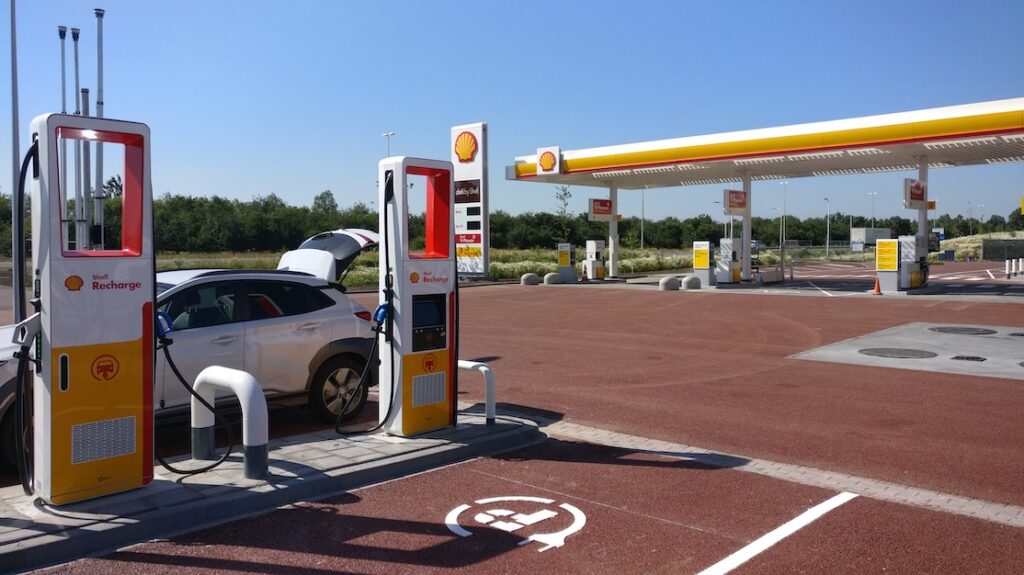
Around 20 energy storage systems (ESSs) are to be deployed at roadside service stations in the UK where the grid supply isn’t enough for rapid charging infrastructure, the country’s government has said.
National Highways, the government-owned company which operates, maintains and improves major roads and motorways, is to make an £11 million (US$14.63 million) investment into ESSs, with the intention of alleviating range anxiety through the provision of more rapid chargers.
Enjoy 12 months of exclusive analysis
- Regular insight and analysis of the industry’s biggest developments
- In-depth interviews with the industry’s leading figures
- Annual digital subscription to the PV Tech Power journal
- Discounts on Solar Media’s portfolio of events, in-person and virtual
The ESSs will store energy in quiet periods, and then provide rapid high-power charging at busy times until the motorway services can obtain increased power directly from the grid for rapid charging themselves.
National Highways is currently discussing the move with prospective suppliers, and plans to install the energy storage systems within the next two years.
“Whilst we have limited control over the number of petrol and diesel cars on the network, by supporting the expansion of the rapid charge points network, we hope to increase EV drivers’ confidence for all types of journeys, both long and short,” Malcolm Wilkinson, head of energy for National Highways, said.
The rapid chargers enabled by the storage form part of the government’s vision for the rapid charge point network in England, with an aim of around 6,000 high powered chargers on the motorway network by 2035.
The Rapid Charging Fund is also set to support the deployment of motorway rapid EV chargers by providing funding for upgrading connections to meet future demand for high-powered charging when it is “prohibitively expensive and uncommercial”.
Meanwhile, the government is also eyeing long-duration energy storage, having released a call for evidence in July on how to enable long-duration energy storage.
This story first appeared on Current±.






